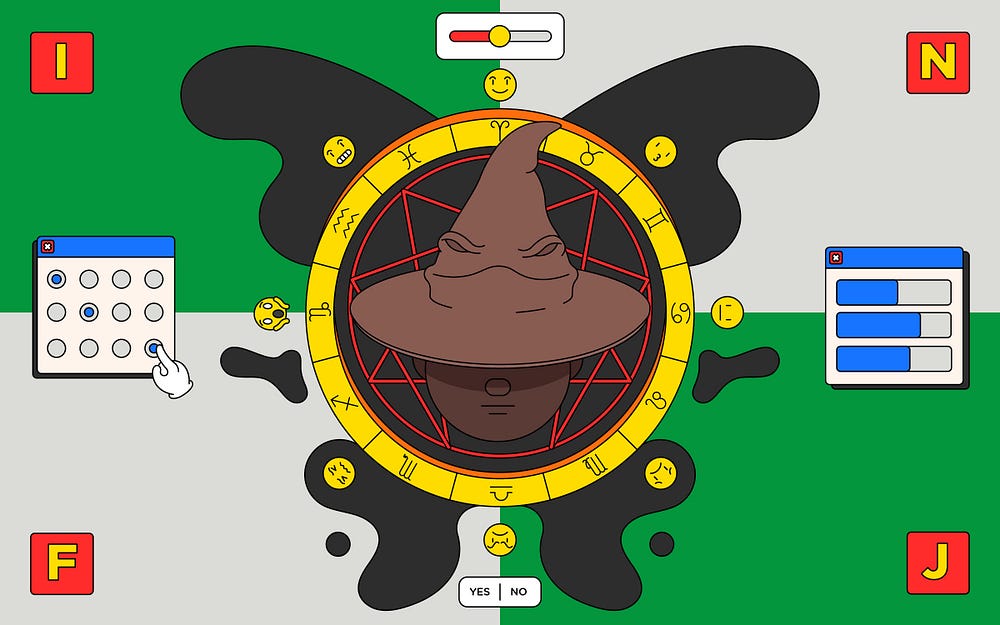Member-only story
The Personality Typing System for Every Personality Type
From astrology to Enneagram to ‘BuzzFeed’ quizzes, humans can’t resist categorizing themselves and others

 To be human is to categorize. Long before we had a BuzzFeed quiz to tell us which character from Succession we are, we slotted people into types — by the alignment of the stars under which they were born, by the portions of certain “humors” in their bodies, and by whether they are more outgoing or quiet at parties.
To be human is to categorize. Long before we had a BuzzFeed quiz to tell us which character from Succession we are, we slotted people into types — by the alignment of the stars under which they were born, by the portions of certain “humors” in their bodies, and by whether they are more outgoing or quiet at parties.
Now there are behavioral-science-based systems, too: One data-backed system, developed by researchers at Northwestern University, sorts people by clusters, identifying four basic types — average, reserved, self-centered, or role model — based on over a million respondents who took an intensive personality test.
Most personality typing systems are hopelessly inaccurate, so this is an effort to move that human tendency to categorize into more scientific territory, according to one of the study’s authors. “People want to know about themselves, and that’s why they like that kind of feedback,” said William Revelle, a professor of psychology at Northwestern University.
Dimensions are more accurate than rigid categories, he said, but people aren’t inclined to think along those lines. “Thinking…

